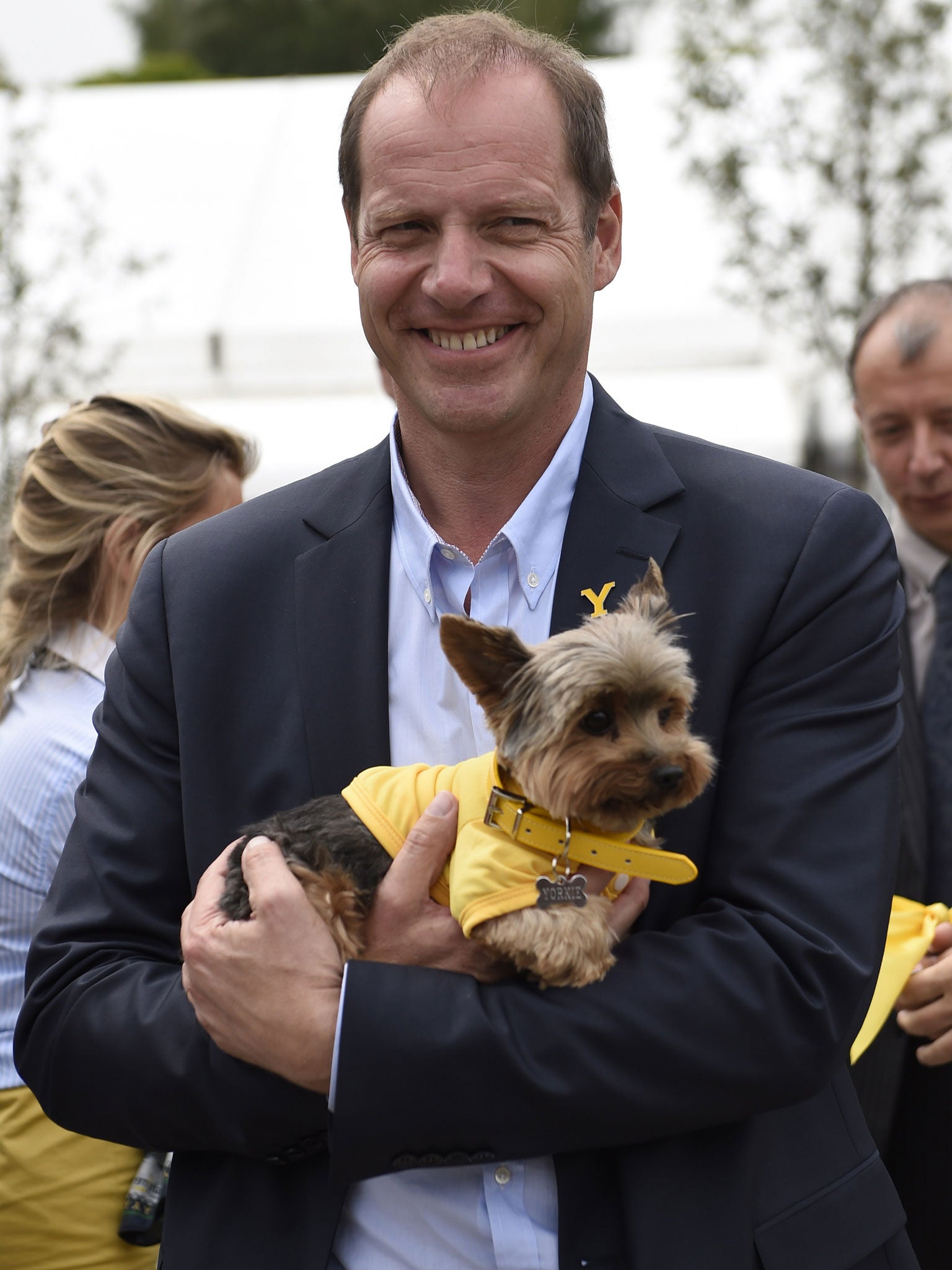Tour de France: Man who brought the Tour to Britain
Christian Prudhomme on why he is so pleased to be staging today’s Grand Départ in Yorkshire and how glad he is to return to London, where he made his bow as race director

As the Tour de France peloton rolls out of Leeds this morning, predicting the exact fortunes of the 198 riders in it over the next three weeks is obviously impossible. But for the man standing out of the sunroof of the leading, bright red official vehicle and waving the flag that indicates that the Tour 2014 is officially under way – Tour director Christian Prudhomme – there will already be a distinct sense of “mission accomplished” about the three British stages.
It would be inaccurate to describe the Tour’s three opening days on this side of the Channel as Prudhomme’s specific brainchild but without the former journalist and TV commentator’s approval – and his keen appreciation of what he feels having a race start in Great Britain means for the Tour de France – it is arguably much more unlikely it would have gone ahead.
Foreign starts for the Tour de France happen roughly every two years – in 2012 it began in Liège, in 2010 in Rotterdam, in 2015 it is due to start in Utrecht. But Grands Départs in Great Britain are a very recent phenomenon, starting with London 2007, and the Tour had only visited the UK twice before that, in 1974 and 1994.
But, as Prudhomme sees it, there is one outstanding reason for a second visit in seven years after a century in which the Tour was all but ignored in Britain.
“You have to consider the development of cycling as a hobby and as a sport in recent years in the UK,” Prudhomme tells The Independent. “Of course, there’s a lot of that in Yorkshire, but what I’ve seen in the south, too, in Cambridge and London, is also very impressive.
“London in 2007 was an extraordinary Grand Départ. But we said the Tour would come back in, say, 10 years.
“What changed that was the victory of Sir Bradley Wiggins in 2012, the emergence of a real mass fascination for cycling in Britain, the arrival of Team Sky, but above all the victory of a first British winner in the Tour. We had to do something to react to that.”
As Prudhomme sees it – rightly – prior to 2007 Britain’s professional road-racing roots were, historically, much thinner on the ground than in mainland Europe.
For decades, although certain areas with strong cycling traditions, like Yorkshire, had produced figures of the stature of GB Tour pioneer Brian Robinson and Barry Hoban, cycling was a minority sport. That is increasingly no longer the case.
“In recent years I think British cycling has really developed, first on the track with Sir Chris Hoy in the early part of the last decade, and then another big step forward was the Tour de France start in 2007 in London.
“Add in the 2008 Olympic Games and boom!” – he makes a very Gallic explosion noise – “it’s really taken off.
“That Bradley Wiggins was wearing the yellow jersey of a Tour winner when he rang the bell that announced the start of the 2012 Olympics – that was very big for cycling and for us. Something of which we felt very proud.”
The Yorkshire bid to start the Tour was so boosted by “le boom” in interest in all things two-wheeled in Britain, in fact, that Prudhomme decided to give it top priority. “We had some other strong candidates for 2014, like Florence, and it wasn’t easy to do that, because the Tour has never started in Italy.
“Furthermore, 2014 was the centenary of the birth of [Florence-born Tour star Gino] Bartali, who had just been admitted to the list of ‘the righteous amongst nations’” – an honour awarded to those who helped Jews escape the Holocaust.
What Prudhomme had not expected, he says, “was that we could do stages as diverse as we have this weekend in Yorkshire. I was expecting some kind of flat terrain for a bunch sprint, but not that we could do something as challenging as Sunday’s hilly stage into Sheffield.
“Then, of course, that stage from Cambridge to London has its own special feel too.”
Prudhomme personally recollects certain moments of the Tour’s past, he says, when it went to Britain.
“As a kid I can remember when the Tour went to England, to Plymouth, in 1974, and then 20 years on there was all the excitement of Chris Boardman winning the yellow jersey in Lille just before the Tour crossed over the Channel to Dover.
“Then in 2007, that was the first Tour I was fully in charge of running, and that was just incredible.
“If I have one image of that race, it was standing on Tower Bridge, where the Tour’s road stage officially got under way.
“After playing the French and British national anthems, whereas normally it’s the organisers who kick off the applause, on that occasion, the riders were so impressed they broke into applause themselves – led by Fabian Cancellara, the yellow jersey.”
Among the starters in London that year was one nervous rookie professional, Mark Cavendish, who, Prudhomme points out, has been instrumental in stoking British interest.
Should Cavendish win his 26th Tour stage today, of course, it could hardly be more appropriate.
Subscribe to Independent Premium to bookmark this article
Want to bookmark your favourite articles and stories to read or reference later? Start your Independent Premium subscription today.

Join our commenting forum
Join thought-provoking conversations, follow other Independent readers and see their replies